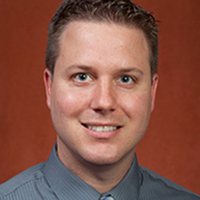
Human cells, whether healthy or damaged, are able to communicate with each other by secreting small vesicles packed with a sophisticated cargo of functional proteins and RNAs.
The signals coming from a healthy cell are part of what allows life to flourish. The signals being sent by damaged cells, meanwhile, are under scrutiny as a possible source for the spread of cancer and other diseases.
One Florida State University College of Medicine scientist is zeroing in on establishing how the cargo of those tiny vesicles, known as exosomes, is reorganized when cancer is present. David Meckes, assistant professor of biomedical sciences, believes he is close to understanding how the antagonist in the reorganization does its work.
Meckes received a $1.7 million grant from the National Cancer Institute of the National Institutes of Health to further examine his theory. His research could point to more effective and less harmful ways to treat diseases such as cancer.
“In this study we hope to advance understanding of how a cancer-causing virus modulates the production and functions of exosomes,” Meckes said. “These questions are not only significant to the fields of oncogenic viruses and extracellular vesicles, but also to general aspects of cancer biology, including cell growth, transformation, and metastasis.”
The study of exosomes is part of a young and rapidly expanding field of research, and Meckes already has published significant findings that led to his current study. He was the first to demonstrate that a viral protein known as LMP1 alters the cargo of exosomes released from cells infected with a human tumor virus known as Epstein-Barr. And he showed that the modified exosomes are able to transport proteins capable of transforming a healthy cell into a tumor cell through the activation of cellular growth signaling pathways.
“Despite the potential importance of these viral-modified vesicles in the formation of a cancer, very little is known about how LMP1 actually enters and manipulates the host exosome pathway,” he said.
Meckes and his team at Florida State have two specific aims in their ongoing five-year study. First, to establish how the viral protein LMP1 drives exosome content reorganization, thereby altering the function of exosomes. Second, to determine what effects the modified exosomes have on intracellular communication and cellular transformation.
“Uncovering the mechanisms involved in the manipulation of exosome content and function will aid in the design of novel therapeutics to combat cancers associated with Epstein-Barr Virus,” Meckes said. “For example, blocking exosome secretion, or LMP1 targeting to exosomes, may inhibit the growth or ability of cancer cells to spread.
“Additionally, it is likely that findings from these studies will have broad implications in the treatment of other cancers and diseases that are facilitated by cellular communications that take place by way of exosomes.”




